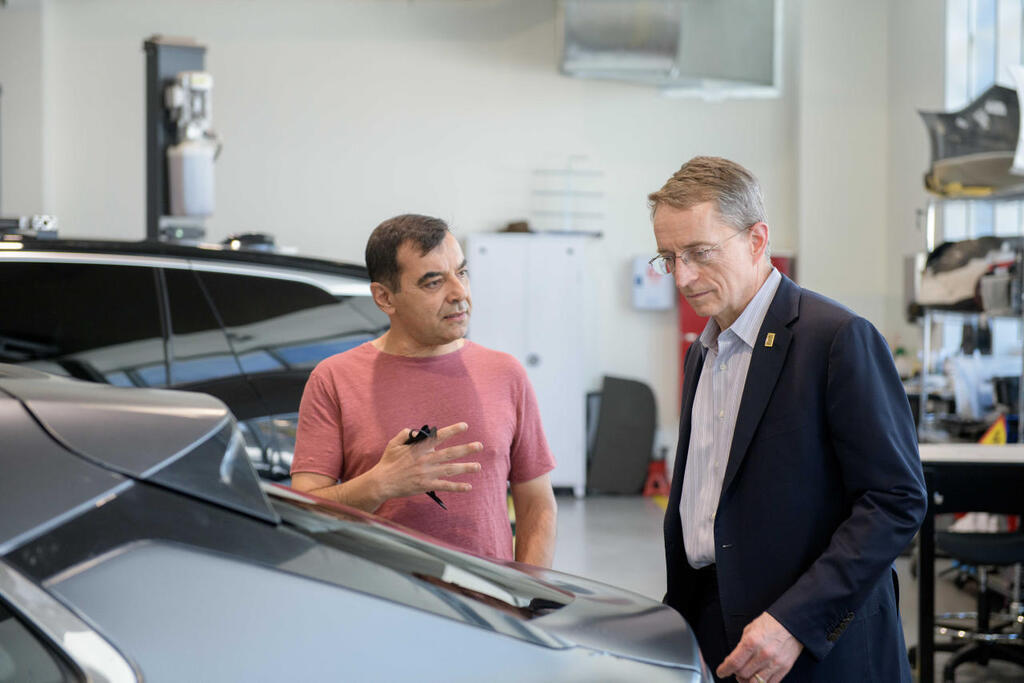
Intel denies Mobileye sell-off, shares rebound despite ongoing troubles
Mobileye stock rises after Intel rules out divesting its stake, amid operational challenges.
Struggling chipmaker Intel said on Thursday it had no plans to divest a majority stake in Mobileye, sparking an 8% rise in the self-driving tech firm's shares in premarket trading.
Shares of Mobileye had taken a beating earlier this month after Bloomberg reported that Intel was looking to sell a portion of its stake in the company.
Mobileye's shares have fallen over 73% so far this year.
1 View gallery


Intel CEO Pat Gelsinger (right) together with Mobieye CEO Amnon Shashua.
(Photo: Mobileye)
Intel is struggling to free up money to reinvest in its business to compete with rivals such as Taiwan Semiconductor Manufacturing Co, which have raced ahead in the production of AI chips.
Mobileye has also been grappling with choppy demand for its driver-assistance chips. The company had cut its annual revenue and profit forecasts in August, hit by weakness in China.
"As the majority shareholder in Mobileye, Intel has an unwavering focus on value creation and are excited about the future of its business," Intel wrote in a statement. "We currently do not have any plans to divest a majority interest in the company. By providing Mobileye with separation and autonomy, we have enhanced its ability to capitalize on growth opportunities and accelerate its path to creating even greater value. We believe in the future of autonomous driving technology and in Mobileye’s unique role as a leader in the development and deployment of advanced driver assistance systems."
Mobileye announced earlier this month that it was shutting down its lidar sensor development division, which employs 100 people. While Mobileye, which is focused on developing autonomous vehicles, will try to find internal positions for some employees, it is estimated that most will be laid off.
This move represents significant cost savings for Mobileye, as the division's development expenses were projected to reach $60 million, with no expected revenue. Lidar is an advanced sensor, one of the key components of autonomous vehicles, but Mobileye has yet to complete internal development and currently uses sensors from the Israeli company Innoviz.
This is another major shift in Mobileye’s operations this year, part of the company’s broader efforts to reduce expenses. Earlier this year, the company shut down its original driver-assistance systems division, which warned drivers about lane departures or imminent collisions. As part of that restructuring, 130 employees were let go, 90 of whom were based in Israel. Following the current round of cuts, Mobileye’s workforce will shrink to around 3,500 employees, though many open positions remain listed on the company’s website.
Mobileye has been facing a slowdown since late 2023, and its market value recently dropped below $10 billion for the first time.
Amid falling revenues, which have led to several downward revisions of its annual sales forecast (currently expected to be between $1.6 billion and $1.8 billion, $1 billion less than originally projected), Mobileye has posted a significant operating loss, nearing $100 million in the last quarter.
Reuters contributed to this report













